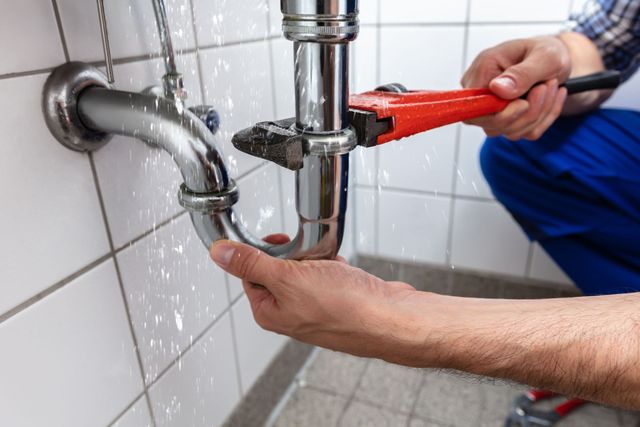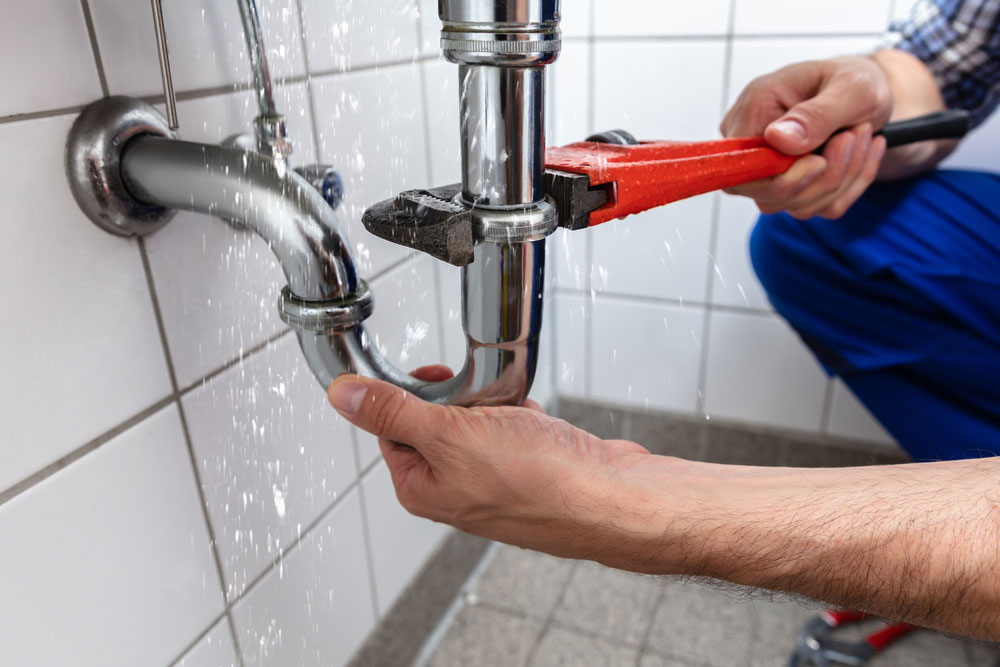Presented here below you can locate a good deal of good quality answers in regards to Understanding Water Hammer - Pipelines, Piping.

Intro
Have you ever before turned off a faucet and heard a loud bang or knocking sound originating from your pipelines? That distressing noise, frequently called an unexpected thud or beat, is referred to as water hammer. It's not simply an annoying peculiarity of older homes-- water hammer can take place anywhere, and if left unattended, it can bring about more significant plumbing troubles. In this article, we'll demystify water hammer, explore its causes, and go over sensible methods to take care of and prevent it. Think of it as your ultimate guide to taming those rowdy pipes at last.
Sudden Shutoff Closure
Promptly shutting down a faucet or device can create a sudden water circulation stop. Dish washers and washing makers, which have automatic valves, are often perpetrators in developing these unanticipated quits.
Incorrect Pipe Sizing
Pipelines that are as well little for the quantity of water streaming through them can raise the chance of water hammer. Restricted room indicates higher rate, and higher rate implies more powerful pressure rises.
High Water Pressure
Extreme water stress not only drainages and money however additionally enhances the results of water hammer. The more force behind the circulation, the harder it hits when required to quit.
Why is Water Hammer an Issue?
You might question, "Is water hammer just a noise problem?" It's more than that. While the noise can be aggravating, the actual trouble lies beneath the surface area.
The Scientific Research Behind Water Hammer
Water hammer is fundamentally about kinetic energy. When water relocates via pipelines, it carries energy. If something interrupts that motion-- like a valve closing also rapidly-- this energy changes right into a stress rise. Pipes, fittings, and shutoffs experience this spike in stress, typically causing that banging noise you dread.
Common Reasons For Water Hammer
Recognizing the origin of water hammer is the initial step to resolving it.
What is Water Hammer?
Water hammer is a shockwave of pressure that happens within your pipelines when water flow stops or alters direction suddenly. Think of a group of joggers running down a narrow corridor, just to have a door bang shut at the end. The sudden quit triggers a domino effect, causing a collision of bodies. In your pipes system, water imitates those runners, and when it's forced to quit all of a sudden, it develops pressure waves that travel with the pipelines.
Noisy Pipes and Household Disturbances
One of the most noticeable issue is the noise. Hearing clunks and bangs each time you do washing or run the dish washer can interrupt the tranquility in your house. It might not feel like a big deal initially, yet in time, it can endure your nerves.
Possible Damage to Pipes System
Water hammer places anxiety on shutoffs, joints, and fittings. Repeated pressure surges can weaken links, create leakages, and even result in pipe bursts-- a costly and troublesome situation no one intends to encounter.
Long-Term Deterioration
In time, relentless water hammer can result in more regular repair services, early wear on parts, and a reduced life expectancy for your pipes system. Consider it as minor anxiety building up right into a bigger issue.
Identifying Water Hammer in Your Home
Prior to you can repair a problem, you need to confirm it's there. So, exactly how do you know if you're dealing with water hammer?
Dead Giveaways and Sounds
Pay attention for knocking or battering sounds when shutting off taps or running devices. If the sound seems to come from within the wall surfaces, there's a great chance water hammer is at fault.
Performing a Straightforward Examination
Attempt turning taps on and off at various speeds. If you notice the sound only accompanies specific fixtures or at particular times, you've gathered clues about where and when water hammer is occurring.
Short-Term Fixes to Control Water Hammer
If water hammer is driving you up the wall, there are prompt steps you can take.
Adjusting Water Stress
If your home's water pressure is established expensive, take into consideration installing a pressure regulator or changing the existing one. Reducing the pressure can lower the strength of those shockwaves.
Safeguarding Loose Pipelines
Pipelines that aren't properly safeguarded can magnify water hammer sounds. Adding pipe straps or supporting materials can aid support them and avoid them from rattling versus surface areas.
Making Use Of Air Chambers or Arrestors
Air chambers are straightforward tools that catch a pocket of air in an upright pipeline. This air works as a padding, soaking up the stress surge. If you don't have them, installing water hammer arrestors can achieve a comparable impact.
Long-Term Solutions and Upgrades
If you're trying to find more permanent solutions, it may be time to think about some upgrades.
Installing Water Hammer Arrestors
These tools, created specifically to respond to water hammer, can be put near components or home appliances. They contain a piston and chamber that take in stress modifications before they spread out throughout your system.
Establishing Your Comfort Level
If you come in handy, you could be able to manage basic repairs like mounting arrestors or changing stress. But if you're unsure or if the issue persists, there's no embarassment in looking for specialist assistance.
When to Call a Plumber
If your efforts at fixing water hammer fall short or if you think hidden concerns within your walls, a licensed plumbing technician can diagnose the problem properly and recommend lasting solutions.
Preventing Water Hammer from the Start
The most effective method to handle water hammer is to prevent it prior to it begins.
Adding Development Storage Tanks
An expansion container linked to your water heater can assist mitigate stress fluctuations brought on by thermal growth. By offering water a place to go when warmed, you decrease stress and anxiety on pipes.
Updating Pipeline Materials
If you're preparing restorations or taking care of an older home, updating to more adaptable piping materials, like PEX, can help reduce the danger of water hammer. These materials can soak up shock much better than rigid pipes.
Stabilizing Expenses with Benefits
Remember, the option-- pipe damage, leakages, and continuous annoyance-- can be even more expensive in the future. Think of these repairs as a financial investment in comfort and home worth.
Expenses and Considerations
Investing in preventing or dealing with water hammer can conserve you money in the long run.
Approximating Costs
The cost differs depending upon the seriousness of the trouble and the selected service. Straightforward repairs like adding arrestors or pipeline supports may be relatively affordable, while extra comprehensive upgrades can cost even more.
Do it yourself vs. Expert Aid
Some property owners like an excellent do it yourself challenge, while others like to leave plumbing issues to the pros.
Designing a Correct Pipes Format
If you're building a brand-new home or going through major restorations, speak with a plumbing regarding designing a design that reduces abrupt water flow adjustments and includes correct shock-absorbing elements.
Normal Upkeep Checks
Much like your cars and truck requires regular solution, so does your pipes system. Normal look for leakages, pressure changes, and weird noises can catch concerns early and stop water hammer from taking hold.
Verdict
Water hammer isn't just a frustrating sound; it's a signal that your pipes system needs focus. By understanding what creates it, taking immediate activity, and investing in lasting services, you can guarantee your pipelines remain tranquil and silent. Whether you choose a straightforward do it yourself technique or contact a professional, resolving water hammer is a step towards a more calm and trusted home.
What Is Water Hammer & How Do You Stop It?
How Water Hammer Is Triggered
Water hammer is often triggered by a valve closing at the end of a pipeline. Tilting disc, swing, and double-door check valves tend to close very quickly, creating high pressure, but water hammer can also be caused by pump failure.
Water is an incompressible liquid, so an impact against a closed valve causes a shock wave that propagates at the speed of sound. It will continue until it hits the next pipe elbow or end of a pipeline.
In homes, water hammer often occurs when a washing machine valve closes after the drum reaches full capacity. Water continues to flow rapidly. It has nowhere to go, so it slams against the side of the pipe, which can bump against other pipes or the frame in the wall.
What Causes Water Hammer?
- High water pressure: Excessive pressure can make the issue more pronounced.
- Quick-closing valves: Appliances like washing machines or dishwashers often have quick-closing valves that create abrupt water flow changes.
- Loose pipes: Pipes that aren t properly secured can amplify the noise and vibrations.
- Faulty air chambers: Many plumbing systems include air chambers that absorb shock. If these become waterlogged, they lose effectiveness.
How to Stop Water Hammer
- Drain the air chamber: Home plumbing systems often have an air chamber to absorb the shock of water when a valve closes. Located inside walls, an air chamber can become waterlogged. This can be fixed by draining your plumbing system, which requires turning off the main water valve and opening the highest faucet in your home. Then drain water from the lowest faucet. The chamber should fill up with air once the water is drained and resolve your water hammer problem.
- Install a water hammer arrestor: This device has an air-filled cylinder to absorb the impact of abrupt increases in water pressure. Most water hammer arrestors are installed between the shut-off valve and supply line via screw-type connectors. One arrestor should be installed on the hot-water supply line and another on the cold-water supply line.
- Adjust the water pressure: If the water pressure in your pipes is too high, the steps above will only work temporarily. You can regulate the pressure by adjusting the pressure-reducing valve, which is often located where the main water supply enters your home. To adjust the valve, turn the handle or, if necessary, with a wrench or screwdriver. The setting should be below 50 pounds per square inch (psi). Reducing water pressure also conserves water, saves energy, and can prolong the life of plumbing appliances.
- Tighten your water supply lines: Sometimes, the U-shaped straps to fasten water pipes to wooden joists or studs aren t tight enough. As a result, pipes can shift and cause noise. You can fix the problem by tightening the screws holding loose pipe straps. Additional straps can be added to improve stability. Pipe straps are usually made of thin metal or plastic, while padded types are available to reduce vibration.
- Insulate water supply lines: Foam pipe insulation prevents pipes from freezing and can create a cushion for loose pipes. They fit easily over your water supply line and can usually be purchased in 6-foot lengths.
Effect of Water Hammer on Plumbing Systems
Water hammer may happen occasionally, but it can cause a sudden plumbing failure or lead to damage over time. It may occur due to excess water pressure in supply lines, or perhaps plumbing pipes have come loose.
Pumps, valves, expansion joints, gasketed joints, and welded joints can be seriously damaged, as can various fittings and connections. Water leaks, ruptured pipes, and property damage can result.
https://villageplumbing.com/blog/what-is-water-hammer-and-how-to-stop-it/

I'm just very fascinated with Water Hammer Explained: Causes, Effects, and Solutions and I really hope you enjoyed our article. Feel free to take the time to distribute this blog if you liked it. Thanks so much for going through it.
Call Today
Comments on “Explaining Water Hammer and Ways to Fix It: Key Insights”